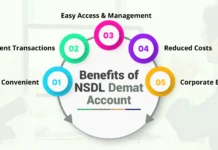In today’s competitive and risk-laden transportation industry, protecting your commercial vehicles is critical to maintaining business operations. Commercial truck insurance provides the necessary coverage to safeguard your fleet against potential hazards and financial losses. Whether you’re operating a small delivery service or managing a large transportation company, understanding the complexities of commercial truck insurance is vital for ensuring the safety, legality, and financial health of your business.
What is Commercial Truck Insurance?
Commercial truck insurance refers to a specialized policy designed to protect businesses that own and operate trucks used for commercial purposes. This type of insurance is tailored to meet the specific needs of companies that rely on vehicles for transporting goods or services. Unlike personal auto insurance, which covers private cars, commercial truck insurance covers various risks associated with business operations, such as cargo damage, vehicle accidents, and liability issues.
Types of Commercial Truck Insurance Coverage
There are several types of coverage available under commercial truck insurance, each designed to address different aspects of potential risks. The most common forms of coverage include:
1. Liability Coverage
Liability coverage is a fundamental component of any commercial truck insurance policy. It covers the costs of damage or injury caused by your truck to other people, vehicles, or property. Liability insurance is typically divided into two categories:
- Bodily Injury Liability: Covers medical expenses, legal costs, and compensation for injuries caused to other people in an accident where the insured truck driver is at fault.
- Property Damage Liability: Covers the cost of repairing or replacing property damaged during an accident involving your truck.
In most regions, having liability insurance is a legal requirement for operating commercial trucks on public roads.
2. Cargo Insurance
For businesses involved in the transportation of goods, cargo insurance is a crucial element of commercial truck insurance. This coverage protects against damage, theft, or loss of the goods being transported. Whether you’re hauling perishable items, electronics, or heavy machinery, cargo insurance ensures that your shipments are financially protected against unexpected incidents during transit.
3. Physical Damage Coverage
Physical damage coverage includes collision insurance and comprehensive insurance. Collision coverage protects your truck in the event of an accident, regardless of who is at fault. Comprehensive coverage, on the other hand, covers damage caused by non-collision incidents, such as vandalism, theft, fire, or natural disasters.
4. Uninsured/Underinsured Motorist Coverage
Despite legal requirements, some drivers may not carry adequate insurance coverage. Uninsured/underinsured motorist coverage protects your fleet in the event that an accident involves a driver with insufficient or no insurance. This coverage ensures that you aren’t left paying out of pocket for damages caused by another driver’s negligence.
5. Workers’ Compensation Insurance
If your drivers are injured on the job, workers’ compensation insurance covers medical expenses, lost wages, and rehabilitation costs. This type of insurance is essential for protecting your employees and ensuring compliance with labor laws in many regions.
Why Commercial Truck Insurance is Essential for Your Fleet
1. Legal Compliance
In many countries, including the United States, commercial truck insurance is legally required for businesses operating commercial vehicles. Failing to maintain the appropriate level of insurance coverage can result in hefty fines, penalties, or even the suspension of your business operations. Ensuring that your fleet is adequately insured helps keep your business compliant with local laws and regulations.
2. Risk Management
The transportation industry is inherently risky, with the potential for accidents, cargo loss, or property damage. Having commercial truck insurance allows you to manage these risks effectively. With the right coverage in place, you can minimize the financial impact of these incidents, keeping your business operations running smoothly.
3. Protection Against Financial Loss
The cost of an accident involving a commercial truck can be astronomical, with potential expenses including medical bills, legal fees, repair costs, and lost business revenue. Without commercial truck insurance, these expenses would come out of pocket, potentially putting your business at risk. Insurance provides a financial safety net, ensuring that your business isn’t burdened by the full cost of an accident.
4. Safeguard Your Reputation
Accidents involving commercial trucks can damage your business’s reputation. Clients and partners may lose trust in your ability to deliver goods safely and efficiently. By investing in commercial truck insurance, you demonstrate a commitment to risk management and responsible business practices, helping to maintain a positive reputation in the market.
Factors to Consider When Choosing Commercial Truck Insurance
When selecting commercial truck insurance, it’s essential to evaluate the following factors:
- Fleet Size and Type: The number and type of trucks in your fleet will affect your coverage needs. Larger fleets or trucks that handle hazardous materials may require more specialized insurance.
- Driver Experience and Safety Records: Insurance premiums are often influenced by the experience and safety records of your drivers. Companies with a lower risk profile may be eligible for lower premiums.
- State and Local Laws: Different regions have varying requirements for commercial truck insurance. Ensure that your policy meets or exceeds the legal requirements in the areas where you operate.
Conclusion
Commercial truck insurance is an indispensable tool for businesses involved in the transportation industry. By securing the right coverage, you can protect your fleet from a wide range of risks, ensure compliance with regulations, and safeguard your financial future. Understanding the various types of coverage available and assessing your business’s specific needs will help you make informed decisions and secure the best possible insurance policy for your fleet.



